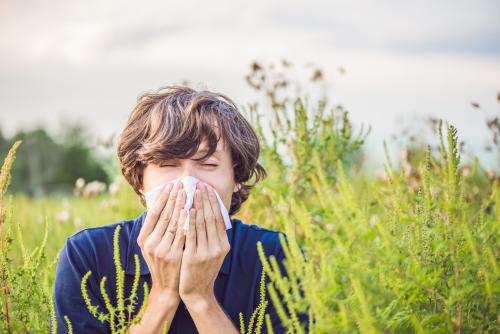Posted by: Associates in Ophthalmology (NJ) in Eye Health
Dry eye affects millions of people every year. An estimated 5% to 15% of Americans are currently suffering from the effects of chronic dry eyes. That is up to 49 million people.
Many things can contribute to your dry eye. But one thing that stands out, particularly during this time of year, is allergies.
Keep reading to learn more about dry eye syndrome and if your allergies are contributing to your symptoms.
Do Allergies Make Dry Eyes Worse?
Allergies are an overreactive immune response to ordinarily harmless foreign substances. Things like pollen and pet dander are some of the most common allergens.
They can be incredibly irritating to your eyes. Dry eye syndrome has similar eye symptoms to allergies.
Symptoms like redness, itchiness, and grittiness are typical with allergies and dry eye. Dry eye and allergies at the same time can have a compounding negative impact on your life.
Do Not Rub Your Eyes When They Itch
Itchy, red, sore eyes are a literal pain to deal with. Many people tend to rub their eyes to provide some temporary relief from the irritation. It may feel good to do it, but you should not.
Constant and aggressive rubbing can damage your eyes and introduce infection-causing bacteria. Also, rubbing your eyes does not address the actual problem causing your discomfort.
At best, it provides very short-lived relief from dry eye and allergy symptoms. At worst, it can cause you more pain and discomfort and damage your eyes.
How to Limit Your Allergy Symptoms
Rather than rubbing your eyes when they itch, focus on limiting your allergy symptoms. Some valuable tips for doing so are using eye drops, keeping a clean living space, and avoiding high pollen counts.
Over-the-counter drops should work just fine, and you can pick a type that fits your needs. If, for some reason, they do not provide you relief, talk to your eye doctor about prescription drops.
More viscous eye drops last longer but can cause your vision to become blurry as they settle in. Thinner eye drops work fast and don’t interrupt your vision. But they require more frequent application.
Keeping a clean living space is one of the easiest ways to limit your allergy symptoms. During allergy season, close your windows to keep pollen out, and be sure to dust with a damp cloth instead of a duster.
Allergens will cling to a moist cloth which prevents them from becoming airborne. That way, you ensure they stay out of your eyes and your living space remains cleaner.
If your allergies are flaring up, stay inside during high pollen counts. You can check pollen counts on your local news website.
What is Causing Your Dry Eye?
Allergies exacerbate dry eye symptoms. But chronic dry eye is typically the result of a deeper problem. One common cause of recurring dry eye is meibomian gland dysfunction or MGD.
The meibomian glands are in the edges of your eyelids and are a crucial part of healthy tear production. They produce oil that coats your eye, which stops tears from evaporating.
If your tears evaporate before they can hydrate your eyes, you will have chronic dry eyes. The nutrients and water needed to keep your eyes healthy won’t be able to stay on your eyes long enough to do their job.
With MGD, the glands become blocked, which means the oil your tears need doesn’t reach your eyes. That’s why MGD is a common cause of dry eye syndrome.
Schedule an appointment at Associates in Ophthalmology in Livingston, NJ, to treat your dry eyes. If you have dry eye syndrome or MGD, you may qualify for iLux dry eye treatment. Your ophthalmologist will discuss this exciting dry eye treatment at your dry eye consultation.


